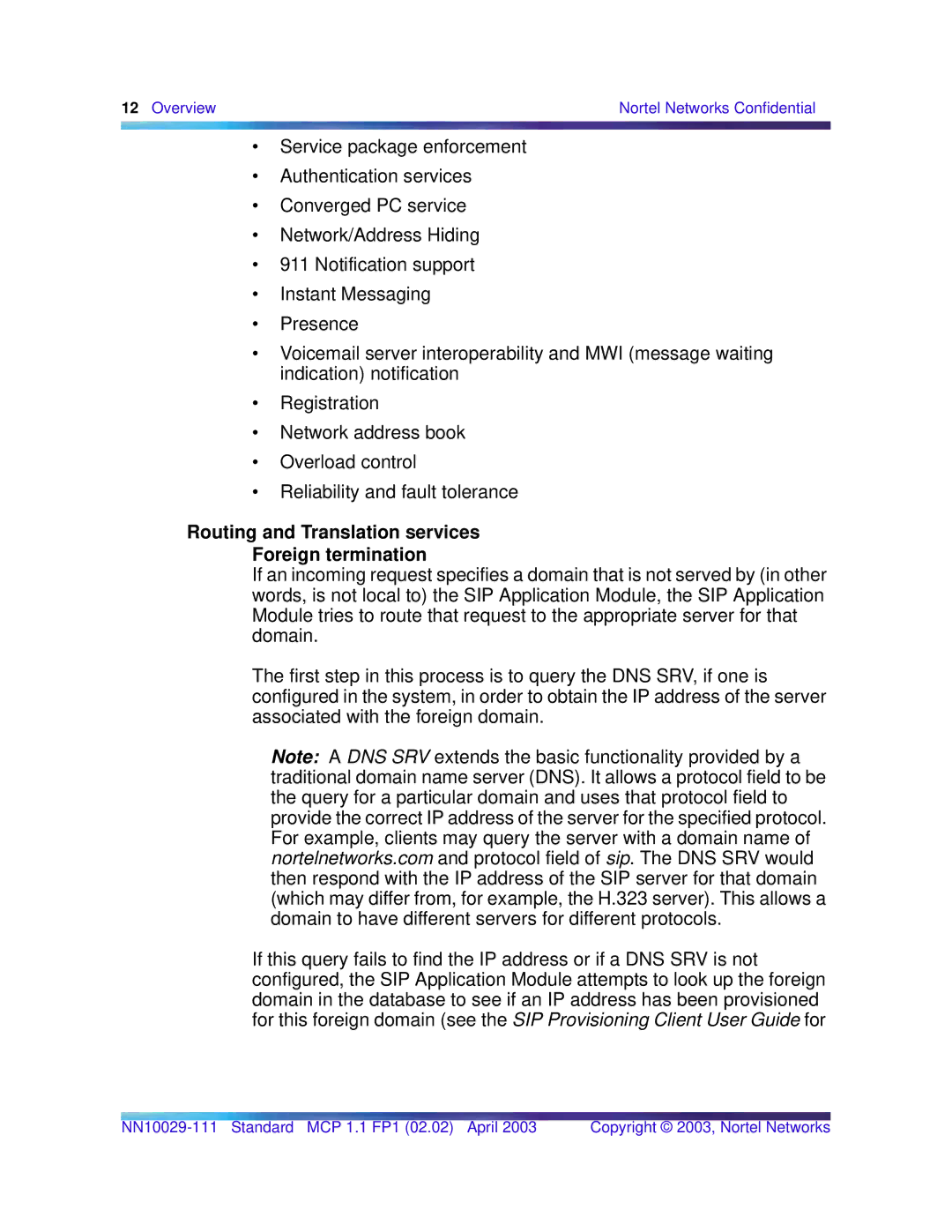
12 Overview | Nortel Networks Confidential |
|
|
•Service package enforcement
•Authentication services
•Converged PC service
•Network/Address Hiding
•911 Notification support
•Instant Messaging
•Presence
•Voicemail server interoperability and MWI (message waiting indication) notification
•Registration
•Network address book
•Overload control
•Reliability and fault tolerance
Routing and Translation services
Foreign termination
If an incoming request specifies a domain that is not served by (in other words, is not local to) the SIP Application Module, the SIP Application Module tries to route that request to the appropriate server for that domain.
The first step in this process is to query the DNS SRV, if one is configured in the system, in order to obtain the IP address of the server associated with the foreign domain.
Note: A DNS SRV extends the basic functionality provided by a traditional domain name server (DNS). It allows a protocol field to be the query for a particular domain and uses that protocol field to provide the correct IP address of the server for the specified protocol. For example, clients may query the server with a domain name of nortelnetworks.com and protocol field of sip. The DNS SRV would then respond with the IP address of the SIP server for that domain (which may differ from, for example, the H.323 server). This allows a domain to have different servers for different protocols.
If this query fails to find the IP address or if a DNS SRV is not configured, the SIP Application Module attempts to look up the foreign domain in the database to see if an IP address has been provisioned for this foreign domain (see the SIP Provisioning Client User Guide for
Copyright © 2003, Nortel Networks |
